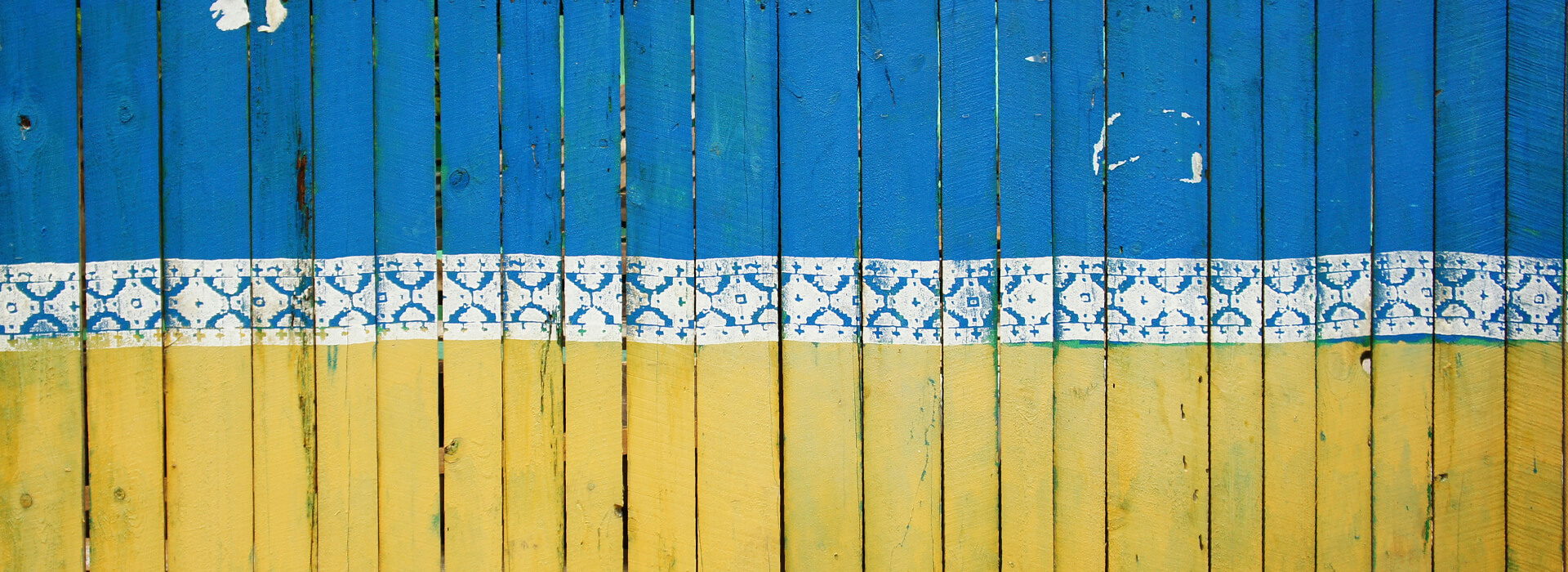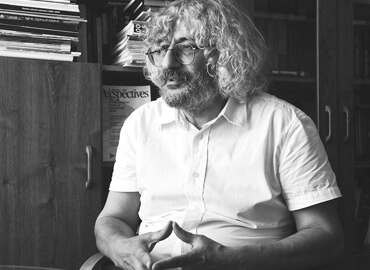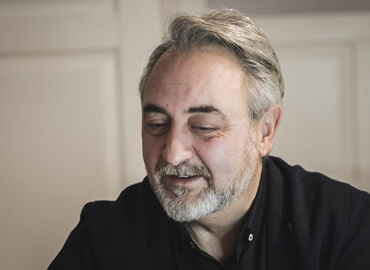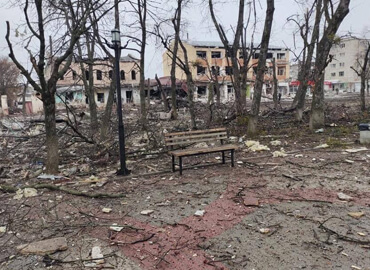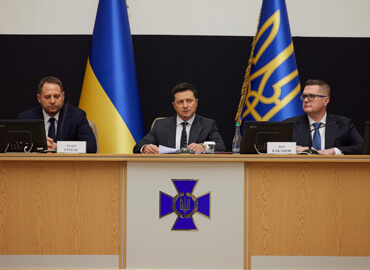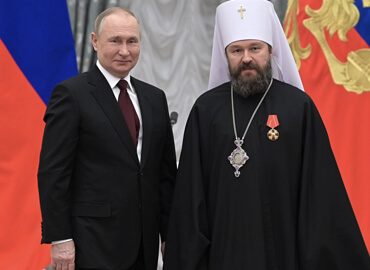The globalization of the consequences of the Russian-Ukrainian war has begun before the war has even ended. It could hardly have been otherwise in a clash between the two largest states – the world and Europe that includes the former republics of the USSR. The whole world is convinced that the war is not only a military action, but also economic steps being taken to weaken the enemy. In our case, this is the Kremlin actively assisting its faithful satellite, Belarus.
In the spring of 2022, to the words of sympathy for Ukraine due to the heavy loss of life stemming from Russia’s attack were added the loud concern of the UN and the rest of the world regarding Ukrainian grain being stuck in ports. Ukraine was unsuccessful in delivering about 6 million tonnes of grain to the world market, specifically to African countries. Russia, the world’s leading grain exporter, is not opposed to pushing Ukraine out of traditional markets, and not just for economic reasons.
The Kremlin is hedging on a «great famine» in Africa, which could lead to mass migration to the EU.
The Russian attack not only closed Ukrainian ports (Mariupol and Berdyansk on the Sea of Azov were captured by Russian troops), but also allowed the invaders to seize about 3 million tonnes of grain in warehouses. This grain is being exported to the Crimea occupied in 2014 and delivered to Syria. (It is not surprising that the Assad regime is not refusing it.) The Minister of Defense (!) of Russia, Sergei Shoigu, not only announced on June 7 the creation of a land corridor between Crimea and Russia through Ukrainian territory seized in 2022, but also in a businesslike manner appraised the potential of agriculture in the Kherson region. According to him, about 10 million tonnes of grain can be grown there. It is worth remebering that Russian propaganda several years ago promised Ukraine it would export black soil abroad if a law on the sale of land was adopted. But today Russians are stealing from the occupied territories of Ukraine. Deputy Prime Minister of Russia Marat Khusnullin was there in May and First Deputy Head of the Russian Presidential Administration Sergey Kiriyenko visited the occupied Kherson region on June 7. Kiriyenko is a former liberal supervising the occupied territories and working for Putin as his Alfred Rosenberg (Reich Minister of the Occupied Eastern Territories in 1941 -1945 and executed by the Nuremberg Tribunal – from reform.by). The Russian Ministry of Defense has publicly accused Ukrainian defenders of either destroying grain stocks or placing positions near grain elevators. In fact, the situation is exactly the opposite: Russian troops, inflicting maximum damage on the Ukrainian economy, are destroying primarily the agricultural infrastructure. For example, on June 4, Russians destroyed the second largest grain terminal in Nikolaev with a missile attack.
It is worth recalling that on June 3, Vladimir Putin personally talked about the prospects for the export of Ukrainian grain, vividly listing possible options. Among those voiced were not only Odessa and the Azov ports captured by Russians, but also railway routes. They are less effective but could in part solve the problem. Putin, for obvious reasons, did not mention the true cause of the food crisis. However, he proposed using Belarus for the transit of Ukrainian grain to the port of Klaipeda, at the same time lifting sanctions from the Lukashenka regime. This statement was preceded by an expression of deep concern by UN Secretary General António Guterres regarding the situation with grain supplies to Africa and Alexander Lukashenka’s expressed readiness for a deal involving Ukrainian grain and Belarusian potash fertilizers. A message with a plan of action was even sent from Minsk to the UN Secretary General. The self-proclaimed president of Belarus on board with this scam in the hopes of restoring his political weight, at least in the Central and Eastern Europe region.
Ukraine today must export grain through the Danube ports of Reni, Izmail and Ust-Dunaysk and deliver it to the Romanian ports of Galati and Constanta, using the railroad for transit to Polish ports on the Baltic Sea. Ukraine is not threatened with a grain shortage, as 75% of the cultivated land in the spring of 2022 was planted, at times on fields harvested only the day befor. But the country is unlikely to maintain a positive trend of increasing its presence in the world grain market. Russia, at least, is very interested in ousting Ukraine from its position.
On June 8, Turkish and Russian Foreign Ministers Mevlut Cavusoglu and Sergey Lavrov discussed the outlook for the export of Ukrainian grain. The talks were preceded by a statement by the Turkish Minister of Agriculture and Forestry, Vahit Kirisci, regarding his intention to purchase Ukrainian grain at a 25% discount. Turkey, it should be noted, was previously a hub for the supply of Ukrainian agricultural products to Gulf countries and is looking to broaden its capacity. Ukraine, however, has not agreed to the cynical plans of Ankara, which has chosen a role of vulture.
The taking of the Ukrainian South and the blocking of Black Sea ports allowed Vladimir Putin to move in several directions at once. The first was to continue to represent Ukraine to the world as a failed state, unable to fulfill its obligations. Squeezing Ukraine out of its positions in the world grain market is an obvious move for the Kremlin. Second was to play anti-sanctions moves with Belarus’s involvement, whose leadership increasingly resembles a vassal vis-à-vis the Kremlin. Third was to conduct a dialogue with the West on «humanitarian issues,» skillfully cancelling out Russia’s role in creating the grain crisis. The demand for the lifting of sanctions should be like an avalanche: one «pebble» is enough, and from there it is a matter of skill. Fourth, and most importantly (still only a rumor), is to incite famine in the countries of Africa and the Middle East, which can lead to a migration crisis that would threaten EU countries. Greece, France, Italy, and Malta are already exploring ways to counteract this.
Putin’s cynical maneuvering demands a collective solution, and not under the auspices of the UN (as we have the real potential of this organization), but NATO. World governments, however, have not yet come to this realization.
Yevhen MAHDA, prepared by iSANS specially for Reform.by.
Материал доступен на русском языке: Война и зерно



